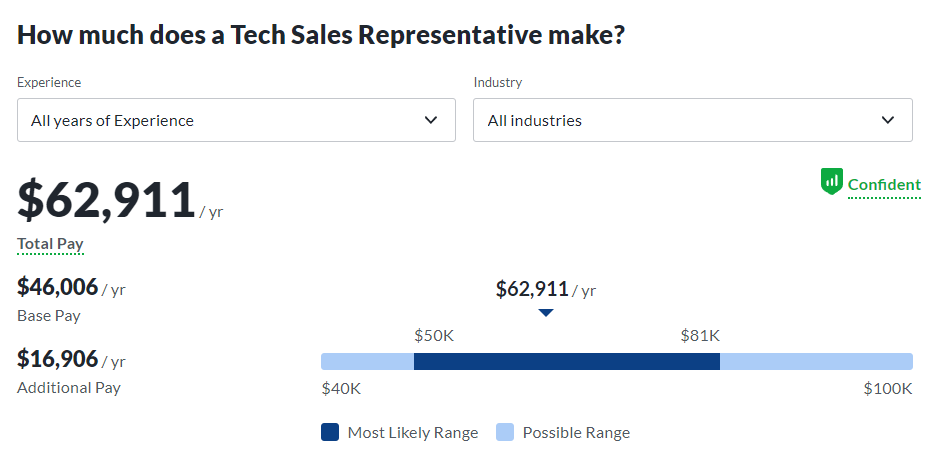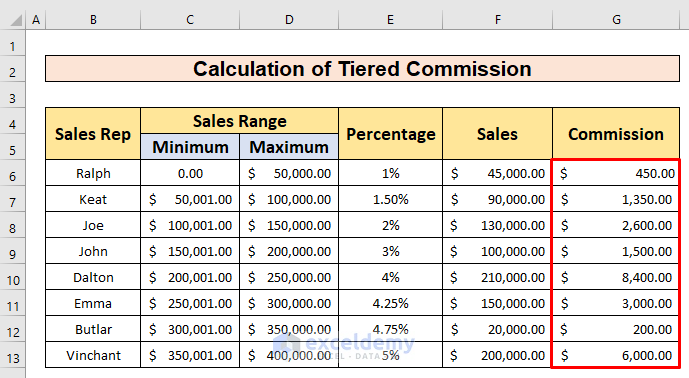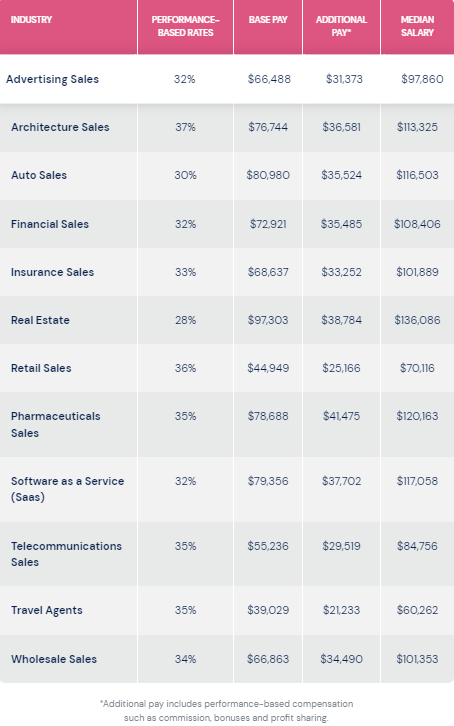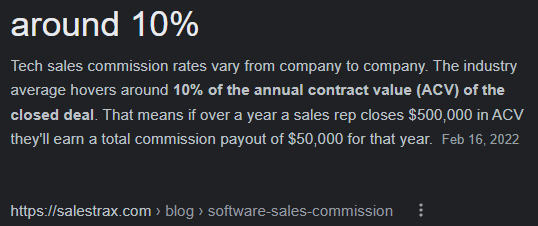How Much Commission Do You Make In Tech Sales?
TECH SALES is the process where tech sales reps sell technology in the form of software, hardware, or an IT service.
Unlike the traditional sales practice wherein businesses focus more on endorsing a product, people who work in the tech industry focus more on endorsing a solution to business owners.
Is Tech Sales the same as Software Sales?

According to zendesk.com, tech sales is most commonly referred to software sales. Keeping in mind the description that tech sales does not only mean selling technological products because it also is involved in software sales and IT service, software sales commission, earned by every software sales rep, also becomes a related topic for this discussion.
What is SaaS?
SaaS is a means of delivering applications throughout the internet as a means of service. Instead of buying, then installing, and constantly maintaining a software, businesses/individuals can just simply access it via the Internet.
Through the payment process of subscription, individuals/business owners free themselves from the complex process of software and hardware management.
With the integration of the internet, SaaS has been a normal part of our daily lives because of the benefits it can offer to us. Every product has their own unique features/purposes which keeps customers subscribing every time. Listening to the latest music is made possible thanks to Spotify, streaming movies became easier thanks to Netflix, both are products of SaaS.
The SaaS industry is composed of a variety of vendors that sell software products/services. They introduce their products/service in the market and for every subscription, their tech sales people earn a piece of software sales commission from their overall revenue.
Thanks to the internet, this new type of industry that offers great benefits has become viable for businesses and mere individuals.
This specific industry is composed of small vendors all the way up to the giant SaaS companies. Examples of these SaaS companies are Google LLC, IBM Corp, Alibaba Cloud. Adobe Inc and many more!
What are the Different Commission Structures in Tech Sales?

The average annual total compensation of a tech salesperson/software sales rep is about $62,911. Keeping in mind that the pay mentioned above is “average base pay”, this figure above is not the same for every company, especially companies that are under the SaaS industry. Some companies are more generous with their revenue sharing, while some practices a strict cash outflow system.
Let’s dive deeper on how the commission structures of each salesperson/software sales rep are calculated.
Base Salary Plus Commission
This commission structure allows tech sales reps to have a constant base pay while still having the opportunity to qualify for a commission structure.
PROS: This shows that the tech sales company values their tech sales representatives. In months where there are not many closed deals in a business’ sales operations, businesses who choose this over the other commission structures don’t let their employees hang out to dry.
CONS: Paying a fixed salary every month while also giving a share of the commission requires a company to have decent financial strength. Usually, it is the top software companies that apply this commission structure because they handle the financial burden.
All Commission, No Base Salary
This commission structure does not give a base salary to their tech sales teams. All the money they can bring home comes from a share they get on the deals they close.
PROS: Without a fixed salary, tech sales representatives will be forced to close deals quickly and constantly. Having commission as your only source of compensation for services rendered, sales reps will have to perform at a high level and keep a good track record in sales.
CONS: This commission is most common only in startups because their financial power is not enough to carry the high risk of constantly paying a fixed salary at their early business stage.
An entire sales cycle, especially in large tech companies, may take months to fully consummate. Having no fixed salaries, most sales reps might just look for another company that can give them a fixed annual contract.
Profit-Based Commission
To calculate commission based on this commission structure, the cost of the product/service is deducted first on the whole amount of the sales price to get the profit, before multiplying the commission rate percentage.
PROS: This assures a company that the sales team are actually converting prospect clients to actual buyers/subscribers to their product or services. This compensation structure also ensures that the costs of creating/delivering products/services are already met before they pay any percentage of commission to their sales team.
Layered/Tiered Commission
The sales commissions derived from this structure are highly reliant on quotas. Below is an example:

The sales range above serves as the quota, and for every level of quota a sales rep achieves, the higher the commission rate. Of course, in return of bringing the business huge revenue, it is the top performers that bring home the bigger earnings and sales commissions due to their excellent technical skills in selling!
PROS: There are many different compensation structures, but logically this is the most in depth yet effective reps commission structure there is.
Not only is the sales rep granted a competitive pay, but this specific commission structure forces a sales rep to close either a huge deal size in every sales cycle to get through the higher quota levels.
CONS: Despite the large earnings which a sales rep can get from this commission structure, there is still a negative consequence which is due to the large compensation possibility.
If a certain sales rep hits a certain amount of sales which grants him a sufficient amount of commission rate, he/she may just lose the motivation to close more deals for a certain period of time in the sales cycle.
Residual Commission
In this type of commission structure, as long as the accounts of their clients are active, the tech company will continue to pay commission to their tech sales reps.
This practice is highly common in industries and companies that practice the subscription payment process such as SaaS and other software sales job.
PROS: This type of competitive pay will force any tech sales representative to ensure customer success and customer satisfaction is met consistently.
CONS: If a client stops renewing his/her subscription, the business will not only meet their sales goals but it will also impact the morale of every sales representative. The impact on the tech sales team will even pose a higher risk if their compensation package does not come with a fixed salary range.
Quota Minimum to Qualify for a Commission
This example of commission structure relies on quotas that ensures a tech company that a good margin of earnings have already been hit before it declares commission rates.
PROS: This will ensure the tech companies that:
a.) their sales team are performing every aspect of the sales process with excellence and
b.) the financial goals of the company are already hit before releasing any salary commission package.
CONS: If the commission rates are only available after you hit a minimum quota, then the quota to be hit must be realistic and overall feasible. If the targets set are unattainable for the sales team, they might just lose their morale in the short run and they might just leave your business in the long run.
Average Commission Rate by Industry and the Average Commission Rate in Tech Sales

According to mailshake.com, tech sales, most specifically SaaS have a 32% performance based-rate. That number is just 5% less than the 37% of Architecture Sales performance-based rates.
SaaS also isn’t far from the top when comparing the median salary aspect of every industry.

According to salestrax.com, every company has their own commission structures. However, the industry commission rate average is 10% of the annual contract value.
The aforementioned information shows that the potential commission rate and overall financial benefits tech sales reps can gain in tech sales are huge! Sales by itself offers an amazing career, what more if the practice of sales is applied in the tech industry!
Tips On How To Create the Right Compensation and Commission Structure for your Sales Team
1.) There is no do-over when creating a sales compensation package. No matter how many years of service in your business he/she has, no matter what job title is under their belt and no matter their current qualifications, there is nowhere in the world where sales reps choose to stay in businesses that keep moving the distance of their goal posts.
If your business sets a goal and said goal is achieved, and the management then decides to move the goal further, it may leave the impression that either the business does not respect their sales teams or the management are having financial liquidity issues because it was not able to release the due compensation.
2.) Salary caps are highly discouraged. One of the best benefits a selling job has is the competitive sales salary it can offer. Putting a cap on the reps commission means putting a cap on their overall productivity. Think about it, you can’t expect for flow in your sales funnel if you don’t take care of the people in your sales roles.
3.) The simpler the structure, the better! Whether it be setting up the software sales commission rate, base salaries, average salary for the year, sales commission rates, or any type of benefits that your sales development representative/ business development representative can bring home, always opt to make the structure simple.
Some entities even try to throw in stock options, additional leave grants, and etc., but having a simple compensation structure makes it easier for you and your accounting staff to monitor the value you give and get from a certain sales representative.
4.) Quotas must be realistic. One factor that can highly affect a sales salary, for better or worse, are quotas. That is the very reason why setting up realistic quotas is a must so that the sales representatives become encouraged to carry on the sales roles and get more revenue for the business.
If the quotas are always unreasonably high and actually unattainable, then don’t be surprised if your sales reps choose to be demoralized, or worse, leave your business.
5.) In every decision making process, rely on accurate data. When setting up the base salary or the sales commission packages, management must always have accurate data to support their claims and judgements. Take note that the word used is “accurate”. Using outdated or flawed data will still result in wrong decisions that can negatively affect your business.
Industry norms must always be validated and used so that the business can treat their sales representatives right, but also, the business can make sure that the compensation packages they offer are well within their budget.
6.) Compensation structures don’t mean anything if there is no actual cash. This specific tip entails proper money management and financial awareness. No matter how specific and fair your compensation structure is, if payroll day comes and the business is not liquid enough to pay off the sales representatives on time, then the planning phase is futile.
Having multiple transactions that generated great revenue is good but making sure that the account receivables are converted on time and enough cash are ready for disposal throughout the sales cycle are all part in setting up the proper compensation and commission structure. Expecting your employees to meet deadlines means they are expecting you to pay them on time as well!
Conclusion
Sales might just be most people’s first job. For some, sales is actually their dream job! Statistically, the demand for manpower in sales is huge! With the necessary technical skills and a lot of self-confidence, the path for success in sales is for everyone.
Howard Schultz, Warren Buffett, Mark Cuban and Nick Woodman are just a few names of successful people who have a background in sales. These people made huge amounts of money because they applied what they learned in sales in their own businesses. This just goes to show that financial success is highly achievable once you understand the concept of sales as a professional.
Speaking of financial success, what really makes sales very attractive to eager professionals? It’s the COMPENSATION of course! Sales, thanks to its sales commission aspect, makes the salary highly competitive in this certain industry compared to others.
Factors such as workplace culture, work-life balance, and etc., are always in the equation but can you stay in a job that can’t pay the bills? This is the reason why businesses must always be logical when creating the compensation packages and sales commission structures.
Having a sound compensation and commission structure serves a business well mainly through 2 things: First, assuring the entire sales team that they are well-taken care of as long as they keep doing their jobs well. Second, the business can monitor its financial position with ease because the cash flows are properly monitored.
